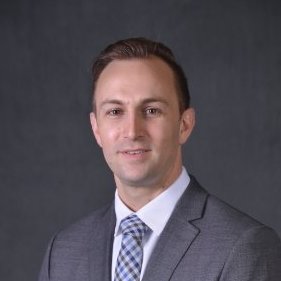This is Part 2 of Wrecking Reality: a series that demystifies the gap in knowledge between academic research and industry product ideation—from the bench to the shelf.
 Jonathan Ploeger
Jonathan Ploeger
Meeting with Dr. Charles Muscoplat is a real treat. He’s lively, insightful, and has experienced more as an academician than probably the cumulative of the entire floor of the office building in which he’s currently situated on the University of Minnesota (UM) campus. In addition to his academic credentials, Dr. Muscoplat serves on the board of MN-Reach: an early-stage seed investment, strategy, education, and coaching initiative funded through the NIH. Previously, Dr. Muscoplat served as a founding member and VP of medical affairs for MGI Pharma, Inc., which sold for $3.9 billion in 2007. Needless to say, he has wisdom to impart when it comes to driving innovation.
“Back in my time, you needed a plan not to fail,” Muscoplat says of his time as an active researcher. “That has changed. (Now people must have plans to succeed rather than plans not to fail).” When I ask him what he believes students should be looking for today, he is quick to tell me: If you’re looking for a job, you’re not doing it right. “Someone has to drive the bus,” he says, picking up a small yellow toy bus from his desk. He tells me the bus is his reminder to simply find what needs to be done and do it.
researcher. “That has changed. (Now people must have plans to succeed rather than plans not to fail).” When I ask him what he believes students should be looking for today, he is quick to tell me: If you’re looking for a job, you’re not doing it right. “Someone has to drive the bus,” he says, picking up a small yellow toy bus from his desk. He tells me the bus is his reminder to simply find what needs to be done and do it.
This is what Salmaan Khan, postdoctoral researcher and technology transfer intern at UM, has done. Dr. Khan served as a research intern with pharmaceutical company Merck, and worked as a scientist with the Dasman Diabetes Institute in Kuwait before returning to academia. While Dr. Khan came back to academia with the intent of finding a teaching/research position in the United States, he, too, has realized a change in the culture of scientific innovation. One change he notes is that there just aren’t enough teaching jobs to accommodate the large number of graduating PhD’s. This realization made Dr. Khan identify what in academia would afford him the ability to continue his passion for the translational aspects of science. Currently, in addition to his postdoctoral research position, Dr. Khan is serving as a technology commercialization intern. “It’s cool because I get to see different ideas from different spaces," Khan says. "It’s amazing to see the stark difference between a purely academic lab and someone who is attempting to patent ideas on a regular basis.” But just how essential is academic discovery in the scheme of creating marketable products?
“Science is a currency,” Dr. Muscoplat says. “The discovery allows you to play.” He says academic researchers too often want to do everything themselves, but when one sees what makes companies great, it’s that they have teams of people fulfilling different roles. “You just have to drive the bus,” he says, meaning that just because you’re a scientist doesn’t mean you only work at the bench. Dr. Muscoplat explains that marketability doesn’t happen in science when you try to do everything yourself. Dr. Khan agrees, but adds that the currency is essential. “Companies aren’t doing basic science research. But if you don’t understand, say, how a cell works, how can you develop a drug to combat when it isn’t working properly?”
Here’s the reality: Neither Dr. Muscoplat nor Dr. Khan attempted to simplify or reduce the complexity of innovation, nor did they over- or understate the importance that companies and academia both play in driving discovery. But the currency of discovery only buys you admission on the bus, and there are lots of seats to fill. In the next post, I’ll dive more deeply into the world of technology commercialization.
Quartzy is the world’s No. 1 lab management platform. We help scientists easily organize orders, manage inventory, and save money. We’re free and always will be. Visit Quartzy.com or reach out at info@quartzy.com.
Interested in writing for The Q? Send us an email!
Share this:

Jonathan Ploeger
Jonathan Ploeger is a former NIH fellow in nutritional cancer biochemistry and is currently PhD candidate at the University of Minnesota. Prior to entering his PhD program, Jonathan was a chiropractor and owned and operated a private practice. Over the past year, he has worked as an intern for the Medical Alley Association, a non-profit biotech advocacy group that helps drive medical innovation through disseminating intelligence, shaping policy, and fostering interactions that support Minnesota’s biotechnological global leadership.
